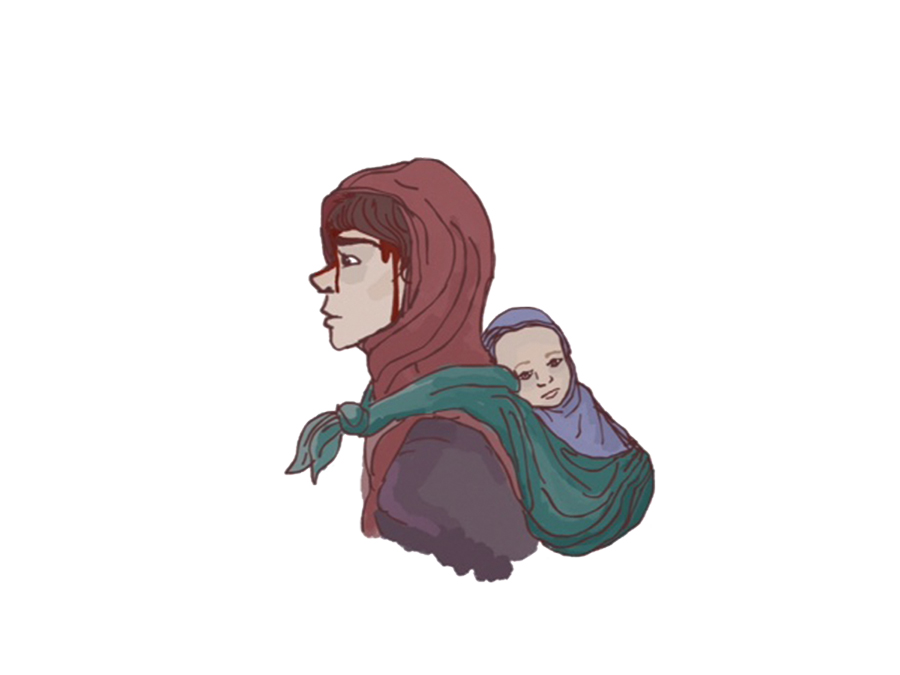Accepting Syrian Refugees: The Strategic Action
With the outbreak of millions of Syrians being forced out of their homes due to the civil war that started in spring of 2011, a question has arisen in our country: should we give refuge to these people who are in search for a new home?
The United States and our European allies have a mixed history of dealing with resettlement crises in the past, and we need to end this shaky trend by choosing courage over fear.
Taking in Syrian refugees is the humanitarian action to take, in addition to being a smart national security maneuver. By letting Syrians into our country we are combating ISIS’s radical ideology, changing middle eastern peoples perspective on America towards a more positive light, and giving safe refuge to men, women and children that need it. All while doing it at extremely low national security risk, because of the fact is: refugees don’t commit terrorist acts.
Some Americans today are wary to accept new, Middle-Eastern people into our country because of terrorist attacks that have occurred in our nation and abroad, but it is just not true that we can link these attacks to the idea that our safety will be lowered if Syrian refugees are allowed.
Since September 11, 2001, over 784,000 refugees have been accepted into the United States and only three have been arrested for planning terrorist activities, according to the Migration Policy Institute. It is also important to add that all three were arrested before any plans could be carried out, and that two of three were arrested for planning terrorist attacks outside of the United States. Also, of the 1,682 Syrian refugees that already have been admitted, 50 percent are children, according to PolitiFact. We are not giving refuge to just anybody, we are mostly giving it to women, children and young families.
The path to acceptance into a country through the refugee process is one of the toughest in the world, contradictory to the idea that just any Syrian can come to our country. Other migration channels are much easier to exploit than the refugee process. For resettlement of refugees, those wishing to go to other countries must first go through strenuous screenings by the United Nations High Commissioner for Refugees, which takes around four to ten months to be completed. Then, the Department of Homeland Security conducts an interview where personal and biological info is passed through federal criminal and terrorism databases. It takes around one to two years before refugees seeking resettlement will ever make it to America.
Accepting these people is the humanitarian thing to do while also being wise in regards to national security. ISIS sees refugees going to America as enemies to their caliphate. ISIS claims that those who leave the Middle East for the West are infidels, so by letting Syrian refugees into our country we are combating ISIS and their beliefs. “America has a tradition of accepting refugees from regions of the world torn by poverty, war, civil war and famine… Surely when accepting desperate immigrants we must weed out suspected terrorists, but hopefully not at the expense of humanitarian decency,” said history teacher Mark Bradford.
If we reject refugees, it will make America less safe because now thousands of Middle Eastern people are homeless and have anti-American sentiment; and this is a breeding ground for future terrorist attacks against us and our allies.
In times of uncertainty, we must not turn away from the values that built our country, such as bravery, freedom from oppression and faith in a better future for all. America is an international leader, we must display moral courage in times of hardship both home and abroad. By not allowing Syrian refugees into our country, we are simply being cowards, and Americans are not cowards.
Putting America First: We Need To Save Ourselves
Since 2011, the Syrian civil war has driven 4.8 million Syrians from their homes and placed in nations around the world. The U.S. has been an active participant in aiding these refugees. Last year, President Obama made a quota of receiving 10,000 more refugees, which has recently been filled. But is it really necessary to take in more refugees at this point?
The answer? No.
There is already so much social upheaval about racism and police brutality that it would be unwise for the U.S. to attempt to shoulder another nation’s people. Allowing more refugees into the U.S. would add onto this social strain and could potentially result in the American people resenting the fact that Syrian refugees are being placed in homes and getting treatment better than the poorest Americans. In 2015, the official poverty rate was 13.5 percent or approximately 43 million Americans, according to a study by UC Davis. Of the households containing Syrian refugees, 22.8 percent receive all the benefits of welfare including cash assistance, Medicaid, supplemental security income and public housing, which is far more than the 5 percent of American households receiving those same benefits, according to a survey taken by Negative Population, Inc.
Placement also takes time and money—a lot of taxpayer dollars from everyone, including our own families in Paso Robles. The additional 10,000 Syrian refugees that the President obtained with his quota is projected to cost U.S. taxpayers, and over $130 million per year, approximately $20,000 per taxpayer,and over the next 50 years, the costs for these additional refugees would add up to $6.5 billion for American taxpayers, according to Numbers USA. Our national debt is already a huge number, estimated to be around $19.3 trillion by the end of the year.
A majority of Americans don’t even support allowing more refugees into the U.S., and since 2014 the number of Americans who support taking in Syrian refugees has decreased, according to the Chicago Council on Global Affairs. An anonymous senior feels “…it’s a bad idea to let them in right now because we have a lot of issues in the U.S. and we need to worry about things going on here before we worry about people outside the country.”
A major fear is that terrorist groups like ISIS could take advantage of the dispersal of refugees around the world to infiltrate and commit acts of terror on the general public. And this hits home, especially for those who have lived through 9/11. Assistant Principal Tom Harrington believes, “This country was built by immigrants, so I am pro-immigration; however we have to be careful and do everything we can to prevent those that would carry out terrorist attacks.”
While it would be ill-advised for the U.S. to take on even more refugees, the Syrian civil war is a global crisis and there is much human suffering because of it. However, America’s role in the Syrian civil war doesn’t necessarily have to be a refuge for the displaced. John Kasich, the Republican Ohio governor, said that the U.S. does “have to play a role” with humanitarian assistance and logistics. However, he never said how many refugees he thought the U.S. should take in. “This is fundamentally a European issue,” he said.







